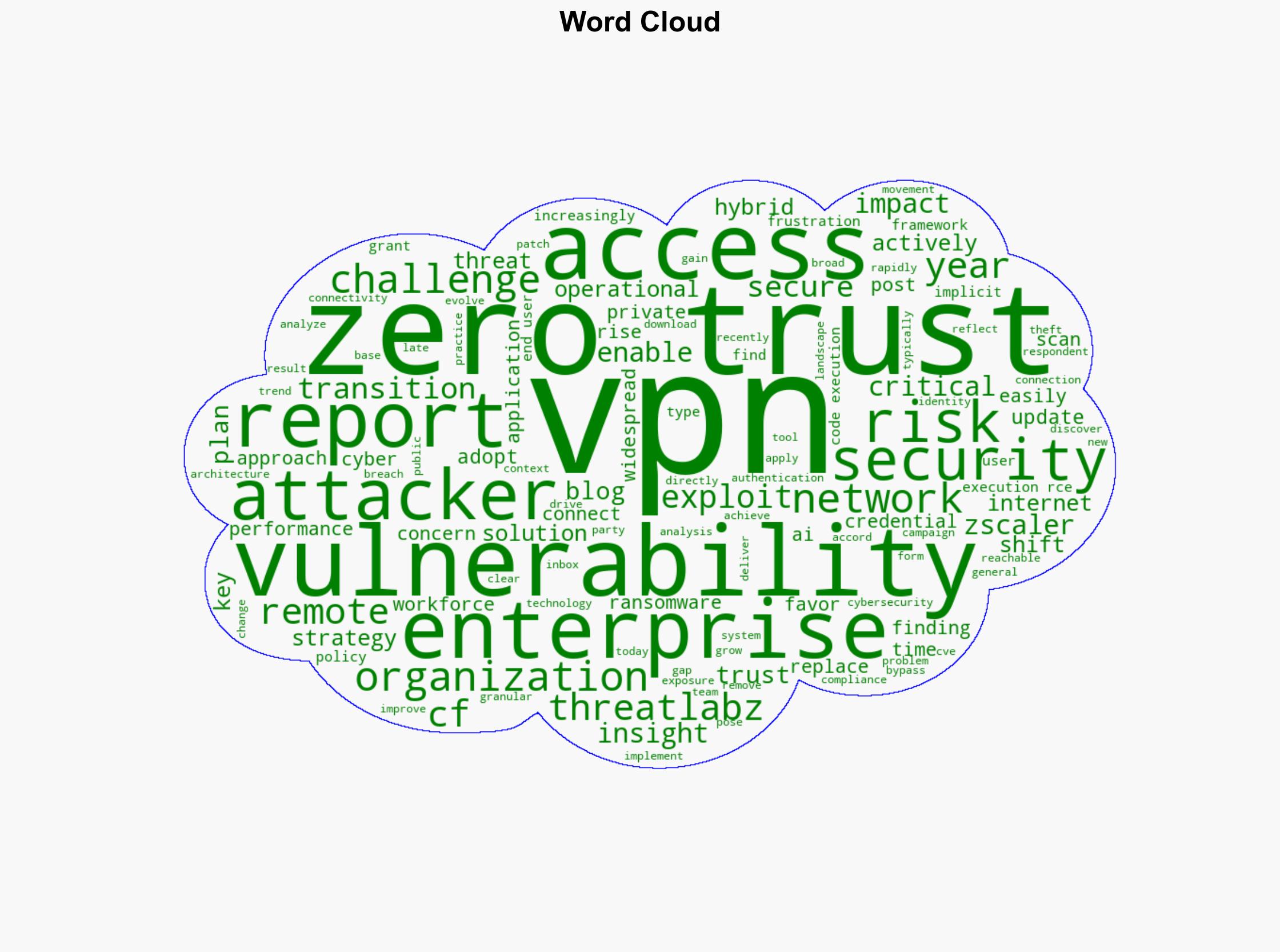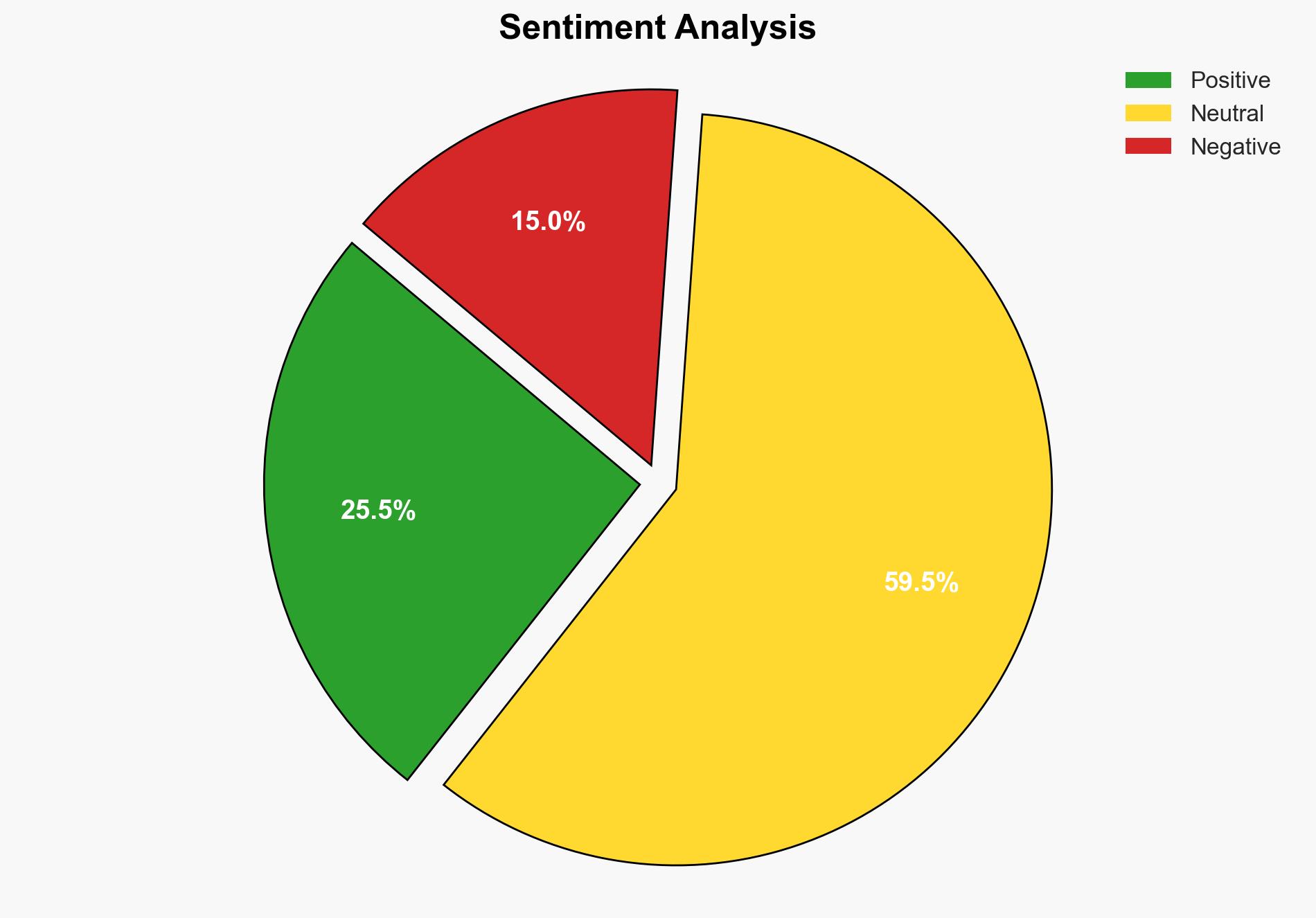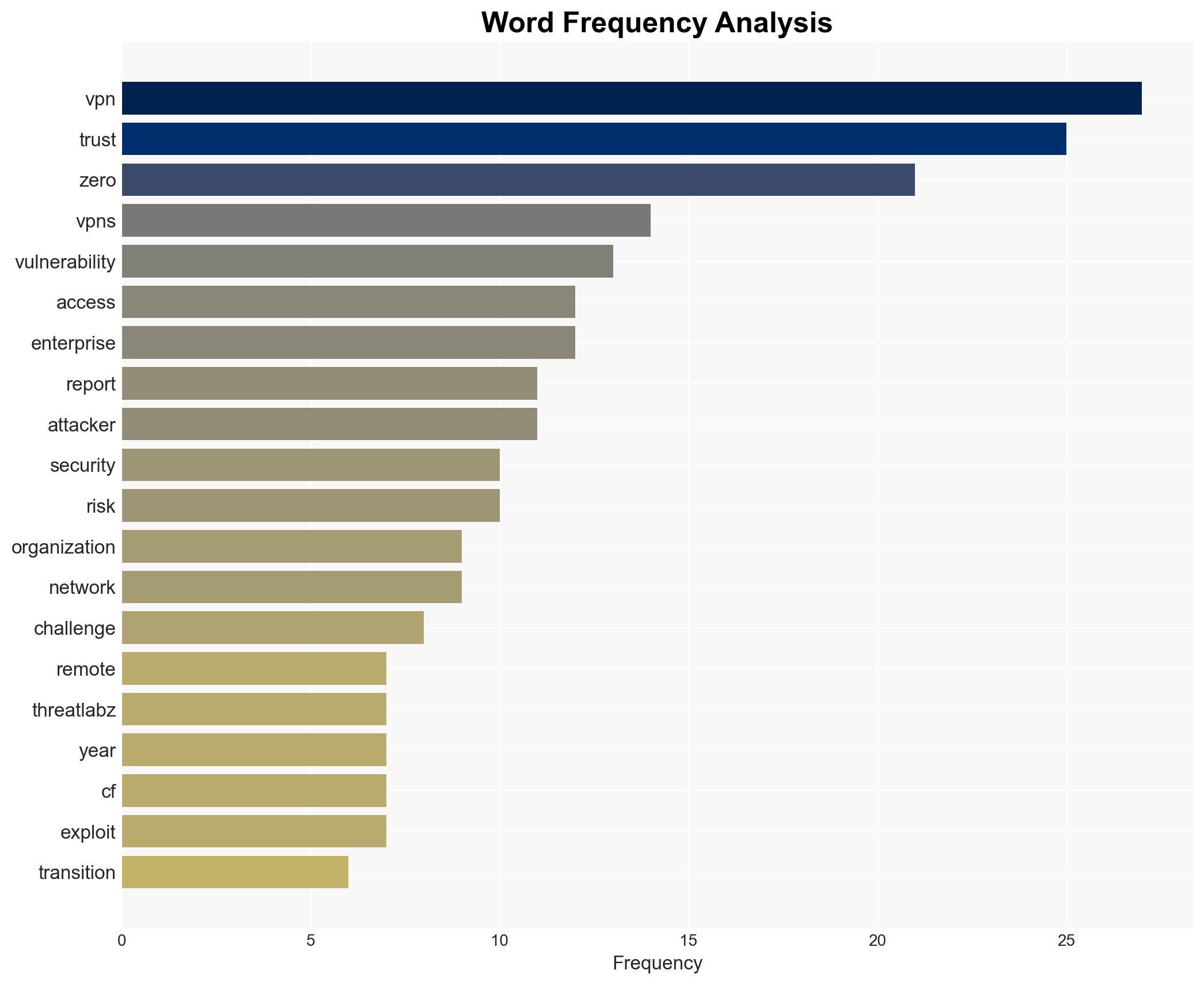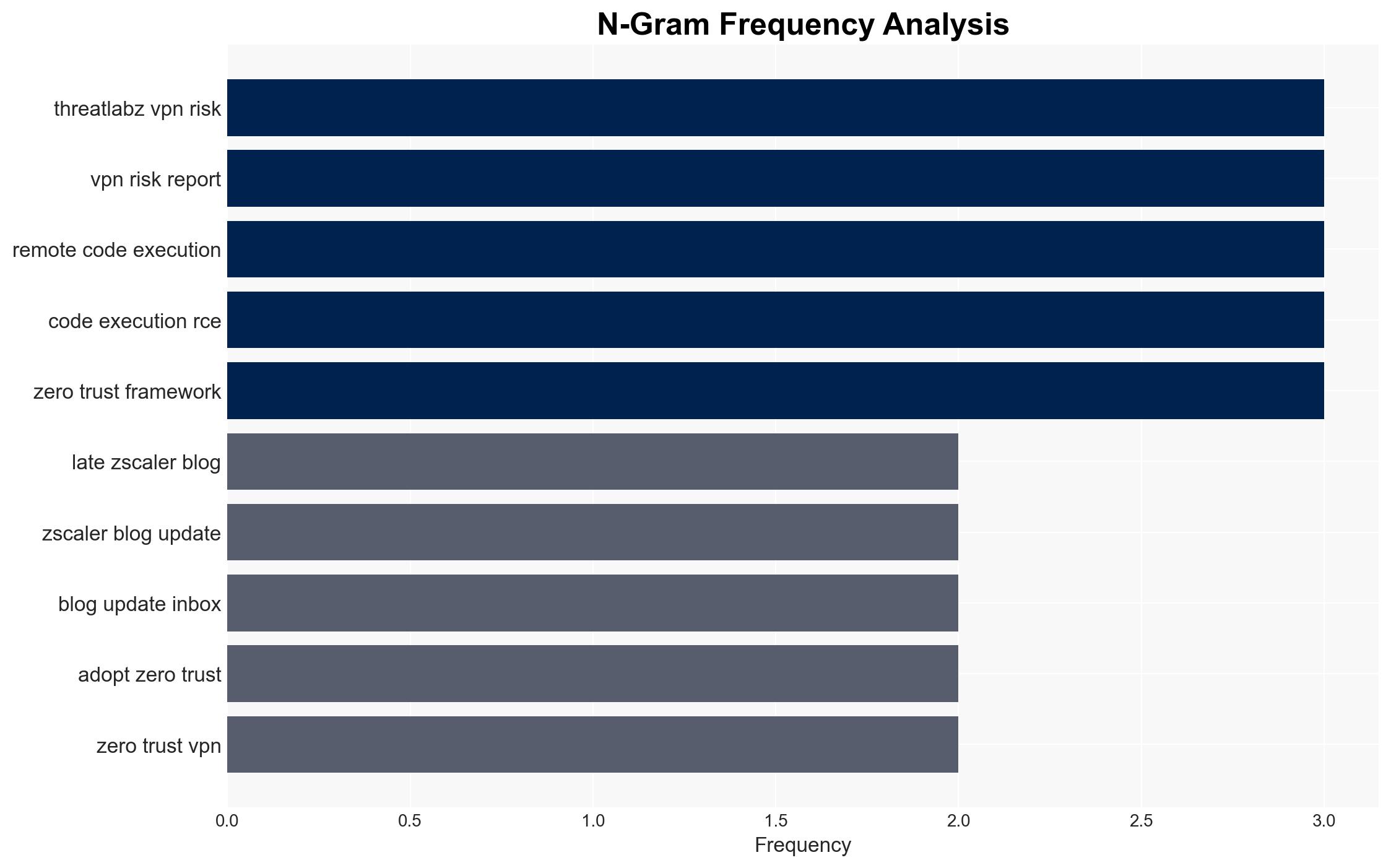ThreatLabz 2025 VPN Report Why 81 of Organizations Plan to Adopt Zero Trust by 2026 – Zscaler.com
Published on: 2025-04-10
Intelligence Report: ThreatLabz 2025 VPN Report Why 81 of Organizations Plan to Adopt Zero Trust by 2026 – Zscaler.com
1. BLUF (Bottom Line Up Front)
The ThreatLabz 2025 VPN Risk Report highlights a significant shift in enterprise security strategies, with 81% of organizations planning to adopt zero trust frameworks by 2026. This transition is driven by the increasing vulnerabilities and performance challenges associated with traditional VPNs. The report underscores the urgency for enterprises to enhance their cybersecurity posture amidst an AI-enabled threat landscape. Key recommendations include accelerating the transition to zero trust models and enhancing AI-driven threat detection capabilities.
2. Detailed Analysis
The following structured analytic techniques have been applied for this analysis:
General Analysis
The ThreatLabz report, based on insights from over 600 IT and security professionals, reveals a growing consensus on the inadequacy of VPNs in the current threat environment. With 65% of organizations planning to replace VPN services within the year, there is a clear trend towards zero trust solutions. The report identifies that 56% of organizations experienced VPN-exploited breaches last year, highlighting the critical vulnerabilities inherent in VPN technologies. The ease with which AI can be used to exploit these vulnerabilities further exacerbates the risk.
3. Implications and Strategic Risks
The transition from VPNs to zero trust architectures presents both opportunities and risks. While zero trust models offer enhanced security, the transition process may expose organizations to temporary vulnerabilities. The widespread adoption of zero trust is likely to impact national security by reducing the attack surface available to threat actors. However, the shift also requires significant investment and organizational change, posing economic challenges. The reliance on AI for threat detection introduces new vulnerabilities, particularly if adversaries develop countermeasures.
4. Recommendations and Outlook
Recommendations:
- Accelerate the transition to zero trust architectures to mitigate VPN-related vulnerabilities.
- Invest in AI-driven threat detection and response capabilities to enhance cybersecurity resilience.
- Encourage regulatory frameworks that support the adoption of zero trust models and AI technologies.
- Promote organizational change management strategies to facilitate the transition to new security paradigms.
Outlook:
In the best-case scenario, widespread adoption of zero trust models leads to a significant reduction in cyber breaches and enhanced national security. In the worst-case scenario, slow adoption and inadequate implementation result in continued vulnerabilities. The most likely outcome is a gradual transition with mixed results, where early adopters benefit from enhanced security while laggards face increased risks.
5. Key Individuals and Entities
The report references significant entities such as Zscaler and Cybersecurity Insiders, as well as unnamed IT and security professionals contributing to the analysis. These individuals and organizations play a crucial role in shaping the future of enterprise security strategies.





